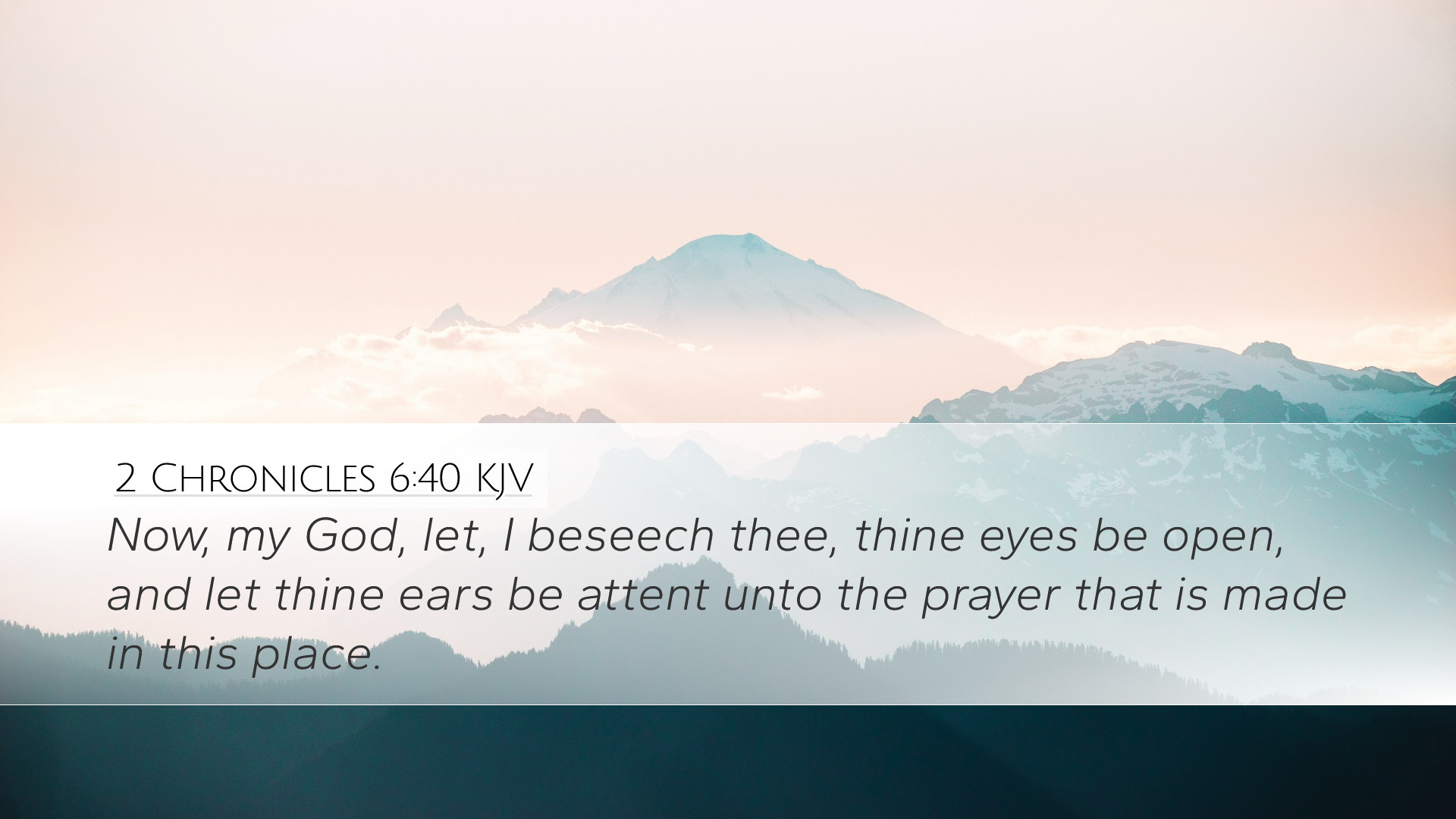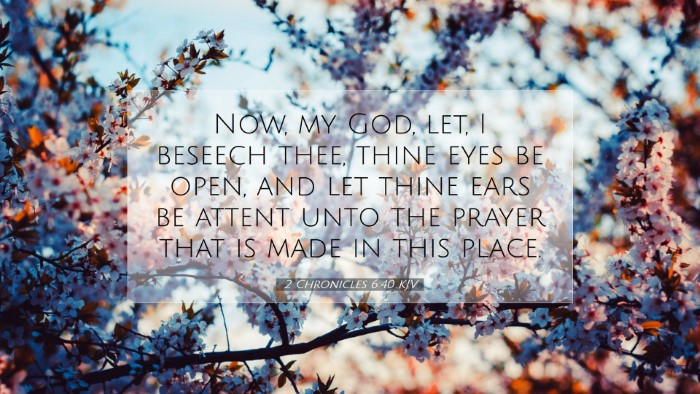2 Chronicles 6:40 (KJV): "Now, my God, let, I beseech thee, thine eyes be open, and let thine ears be attent unto the prayer that is made in this place."
Introduction
The verse 2 Chronicles 6:40 encapsulates a profound plea from Solomon as he concludes his dedicatory prayer for the newly built temple. This moment is significant in Israel's history, representing a pivotal transition from the tabernacle worship to a permanent house of God. The insights from the commentaries of Matthew Henry, Albert Barnes, and Adam Clarke emphasize crucial themes such as divine attentiveness, the importance of prayer, and the presence of God among his people.
Exegesis of the Verse
Solomon's request in this verse contains a fervent appeal to God for His attention. The plea "let thine eyes be open, and let thine ears be attent" suggests an expectation that God is not only able to listen but also to engage with His people actively. Matthew Henry points out that this invocation for God’s attention is a recognition of the divine's omnipresence and readiness to respond to the prayers offered in the temple.
Albert Barnes emphasizes the significance of the temple as a dedicated space for prayer. In this context, Solomon is inviting God's eyes to be fixed upon the temple, symbolizing a haven of divine grace where the prayers of the people might ascend to the Lord. The temple is thus portrayed as the focal point of divine-human interaction.
Theological Implications
This verse carries significant theological implications regarding prayer and God’s responsiveness. Adam Clarke interprets Solomon’s petition as a reaffirmation of God’s covenantal relationship with Israel. The request reflects the belief that God is actively involved in the lives of His people, willing to hear their supplications.
Moreover, it emphasizes the necessity for diligence in prayer. As the temple is consecrated for worship, the expectation that God will listen to prayers made in this holy place underscores the importance of reverence and serious engagement in approaching God.
The Role of the Temple
The temple's purpose goes beyond being a mere physical structure; it serves as a spiritual center for the community of faith. Henry reflects on the symbolic nature of the temple, where heaven meets earth, and earthly prayers ascend to God. The location of prayer becomes vital, signifying that sacred spaces can facilitate divine encounters.
Furthermore, Clarke mentions that the temple represents God's desire to dwell among His people. The construction of the temple manifested God's faithfulness to His promise to establish a dwelling place for His name. Thus, the temple's dedication marked a new era in Israel's worship.
Application for Believers
For pastors, students, and theologians, this verse serves as a reminder of the importance of prayer and the assurance of God's attentive ear. The principle derived from this verse can be applied in contemporary worship settings, demonstrating the necessity of dedication in reaching out to God in prayer.
-
Encouragement in Prayer: Believers are encouraged to approach God with confidence, knowing that He listens intently to their prayers.
-
Significance of Sacred Spaces: Whether in a church building or personal prayer corners, the notion of designating places for communion with God continues to be essential in the life of the community.
-
God's Faithfulness: The faithfulness exhibited in Solomon's prayer reflects the continuous relationship God desires with His followers, warranting trust in His promises and attentive nature.
Conclusion
2 Chronicles 6:40 stands as a timeless testament to the power of prayer and the assurance of God's presence in the lives of His people. The combined insights from Matthew Henry, Albert Barnes, and Adam Clarke provide a rich tapestry of understanding surrounding this verse. As believers reflect on this passage, it’s encouraged to foster a vibrant prayer life, recognizing the sacredness of the spaces dedicated to divine communion, and trusting in God’s unwavering attentiveness to their cries.


